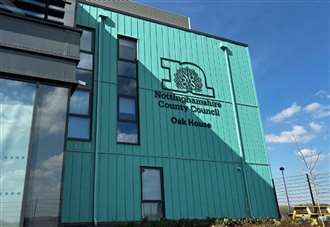Nottinghamshire Council Faces £53M Shortfall for Disabled Housing

URGENT UPDATE: Nottinghamshire County Council has announced a staggering need for an additional £53 million to provide supported living accommodation for young adults with learning disabilities. This financial shortfall comes as the council highlights an urgent need for over 523 new accommodation units within the next five years to meet rising demand.
The council’s recent decision document points to a growing crisis, emphasizing that 83 units have already been identified through collaborations with developers. These units are expected to be ready between Spring 2025 and early 2027-28. However, the projected cost of acquiring the remaining units could push the council’s spending on supported accommodation to a staggering £137.4 million in the 2024-25 financial year, marking a significant overspend.
In a bid to address this financial challenge, officials state that funds will be diverted from other services. The council’s adult social care department is tasked with ensuring that this additional expenditure is accounted for, either by reallocating existing budgets or adjusting future demand projections. Local officials are under pressure to clarify how they will cover this new expense without severely impacting other essential services.
“We are confident this is within existing care budgets,”
a council spokesperson stated, while dodging questions about potential cuts to other adult social care services.
The drive for more supported living accommodations is primarily motivated by cost efficiency. On average, residential care for individuals with learning disabilities costs £1,968 per week, while supported living ranges from £616 to £1,560 per week. Each transition from residential care to supported living could save the council approximately £540 per week per individual, highlighting the financial benefits of this alternative.
Barry Answer, cabinet member for adult social care, emphasized the council’s commitment to improving care quality while ensuring financial prudence. “We’re focused on making sure people get the right care in the right place — and that it’s good value for money too,” he stated.
The urgency of this situation is further underscored by a report revealing that between 2019 and 2024, the net spending on learning disability services in Nottinghamshire surged by 36%. Last year’s budget saw a £20.5 million overspend in the Adult Social Care portfolio, primarily driven by an unfunded increase in the National Living Wage.
As part of its strategy, the council plans to launch a new multi-provider framework in Autumn 2025. This initiative aims to create a list of approved housing providers who can bid to supply the necessary accommodation, with properties expected to be ready within 12 to 30 months. This framework is seen as a crucial step towards alleviating the current housing crisis for young adults with learning disabilities.
The urgency for action is clear, as the council grapples with the dual challenges of rising demand and limited resources. Residents and advocates for the disabled community are closely watching how these decisions unfold and the potential impact on vulnerable individuals in Nottinghamshire.
As this situation develops, stakeholders are encouraged to stay informed about the council’s next steps and any forthcoming announcements regarding funding strategies and housing solutions. The implications of these decisions will resonate throughout the community, affecting not only those in need but also the broader landscape of adult social care in the region.






